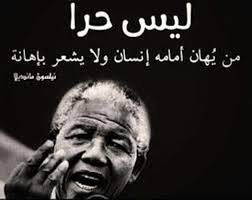Journalistic freedoms and freedom of opinion and expression continue to be subject to fierce and escalating attacks by the Sudanese security authorities, which impose many restrictions to limit the performance of their duties. Journalists and journalists are subjected to unprecedented repression and repression in flagrant violation of the civil and political rights document contained in the Universal Declaration of Human Rights Human rights, embodied in the Sudanese Constitution, which is a departure from the obligations of the Government of the Sudan to the international conventions and agreements that have signed and ratified.
The results monitored by the Arab Network for Media Crisis raise concerns and draw a dark and pessimistic picture of the future of press freedom and freedom of opinion and expression due to the increasing violations of the security apparatus and its continuation as described below:
First: The protocol department at the presidential palace in Khartoum, Nidal Ajeeb, prevented the minors from entering the palace and practicing their profession under the pretext of “not wearing proper uniforms” in an attempt to restrict them and restrict their personal freedom to identify and choose the dress that suits them. The highest sovereign institution in the country.
Second: The security authorities stopped the eastern field program of the Omdurman satellite channel and prevented the presenter of the press program, Abdul Baki al-Dhafer, from appearing in any media. He was also prevented from writing and stopping his daily “Zawiyat” from the al-Shiha newspaper, and he did not stop there. The radio of the University of Khartoum, where he was the Director General, all because of his criticism of “the nomination of the Sudanese President” for a seventh term in 2020. “This is a clear targeting and denial of his right to work and means of decent living.
Third, journalist Abdul Gadir Bakash was threatened with death by a prominent member of Sudan’s ruling National Congress Party (NCP) for criticizing the appointment of people from outside the state for leadership posts in the Red Sea state government to use his party as if they were above the law, Their right to express their opinions and their freedom to write.
During this month, the security apparatus arrested the editor of the site “Bag News” Lina Yaqoub for hours between the afternoon and the fourth of the next dawn, holding her mobile phone “Mobile” and laptop “Laptop”, and achieved with it for about 12 hours continuously around the sources, She was released and asked her to attend the morning of the same morning at 9 am. The security service also interviewed journalist Maha al-Taleb in Al-Tayyar newspaper. If there was any damage from publication, it should be used To spend.
Fourth, the security authorities did not stop practicing their usual habit of confiscating the daily newspapers immediately after printing, another way of closing them because of the large number of debts due to the continuous confiscation. The editorial work and the attempts to issue the daily newspaper became a risky process and imposed a kind of self-censorship on the newspapers. Practices to distract people from the current economic crisis and rampant corruption at the highest levels of power.
Al-Watan and Al-Shiha newspapers were confiscated on Monday and Tuesday, 10/11/2018 after printing , and Al-Watan newspaper was confiscated on Sunday 2 September 2018. The newspapers of the public opinion, the current, the newspaper and the news of the end of last month were also confiscated. Some of them were confiscated more than five times.
Fifth: The crisis of journalists responsible for covering the work of the parliament has been renewed. A month after the boycott, the administration allowed them to enter the parliament. However, it retracted its decision and prevented them from entering the second day and sought to address the press to replace its representatives with parliament. And their inability to access and disseminate information. Their constitutional right to freedom of assembly and protest is punishable by denying them access to parliament. The parliament does not have the right to choose the journalist who covers the newspaper.
In light of these ongoing violations, we in the Arab Network for Media Crisis express our deep concern for the future of press freedoms and freedom of opinion, expression and publication, at a time when the authorities prepared a new law for the press and publications “at the stage of leave” is the most repressive of others, in addition to the law of information crimes, Under the supervision even through their own pages on social networking sites and restrict the freedom of expression of citizens.
The Arab Network for Media Crisis renews its call to journalists, opinion writers, lawyers and human rights activists, and all citizens to stand together for the freedom of speech, and to address violations by the security apparatus against newspapers and journalists and to protect journalists from oppression and terrorism in order to defend the honor of the profession.
Arab Network for Media Crisis
Cairo
September 2018.
 Laa-Laa لا لا موقع شباب السودان الحر
Laa-Laa لا لا موقع شباب السودان الحر












